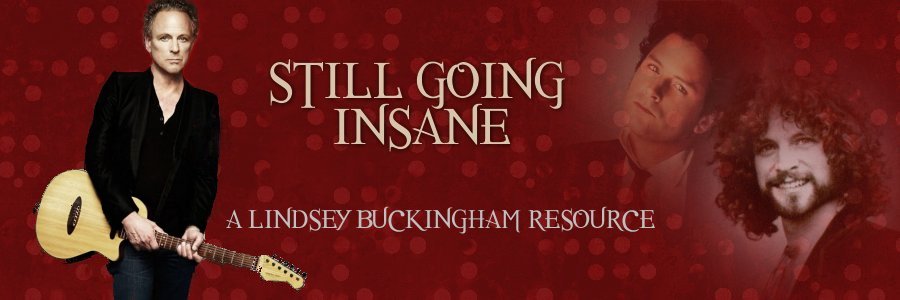It's late October '81 and Lindsey Buckingham's first solo album, Law And Order, has just been released. He's eager to talk about it.
"The album was basically a two-part project," he begins. "It was started in February '81 in a small storeroom in Burbank, using minimal equipment - just a multi-track recorder, a small console and a couple of mikes. During that first phase I worked alone, doing the engineering myself, and quite a few tracks were very nearly completed there." By spring, though, other duties had interrupted; Buckingham was called away to France to begin tracking a new Fleetwood Mac album. "Breaking away at midstream from my own project was difficult at first, but in the end it worked out well," he notes. "Not only did the break help me gain a new sense of objectivity, but it also helped me prepare for the second leg, and to begin sharing ideas with Richard Dashut (Fleetwood Mac co-producer).
"After completing basic tracking with Fleetwood Mac, Buckingham and Dashut returned to the States to begin phase two of Law And Order, working steadily from June through late August. That part of the project was recorded and mixed in much more conventional surroundings (Larrabee Sound in Hollywood), and although from that point on Buckingham and Dashut shared production duties, Law And Order is basically a one-man show. Buckingham wrote, arranged, played and sang virtually everything himself. "Playing the instruments one by one can present a problem in achieving a 'live' feel on a track, especially with drums, but it's fascinating to find ways of working around one's limitations. For example, I'm not an accomplished drummer. It was difficult for me to achieve the 'hesitated' drum feel so important to rock music, especially as an overdub. But there was a logical way around that limitation - I simply recorded a metronome on one track, then sent it through a delay device and bounced the delayed metronome to another track. In that way, I was able to play the drums on the delayed click while playing all the other instruments to the original click. That spirit of experimentation is something I strive for, and it manifests itself in many ways throughout the album. Limitations or not, if the means you use to achieve something are unusual, the result may also be unusual.
"That approach served Law And Order well. Listeners won't confuse its unique shape and sound with any other record in the current marketplace. "Every song has a bit of its own identity," Buckingham says. Keep that in mind as he comments on the individual Law And Order songs...

